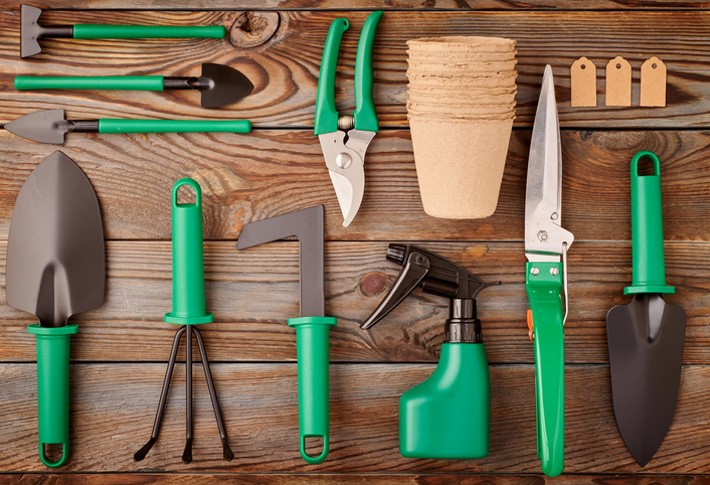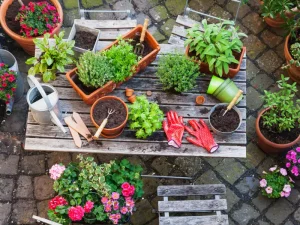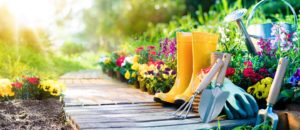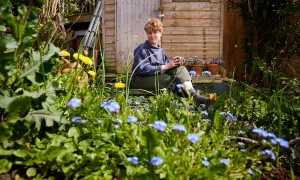to suggest
Taking a garden trip is more than just a hobby; It’s a satisfying adventure that requires the right tools. In this comprehensive guide, we delve deep into the world of gardening to discover the essential tools that can make your hobby a thriving success. From the initial preparation of the soil to growing your plants: we are ready to help you.
Essential garden tools for your hobby
Important points of ground preparation
Proper soil preparation, starting with the foundation, is the key to a successful garden.
soil test kit
Invest in a reliable soil test kit to find out what your soil is made of. This ensures that you provide your plants with the right nutrients for optimal growth.
Trowel and hand fork
A sturdy trowel and hand fork are useful for loosening soil, sowing seeds and transplanting seedlings. Look for ergonomic designs to reduce pressure on your hands during extended use.
compost bin
Invest in a compost bin to create nutrient-rich compost. Recycling kitchen and garden waste is not only good for the environment, but also improves soil fertility.
Planting and growing tools
Once your soil is ready, it’s time to plant and cultivate your green companions.
pruning shears
Use good pruning shears to keep your plants looking their best. Regular pruning promotes healthy growth and keeps your garden beautiful.
Deebo
A drip emitter is a must for accurate placement of seeds or bulbs. This simple tool helps maintain proper spacing between plants, promoting optimal growing conditions.
garden gloves
Wear durable gardening gloves to protect your hands from thorns, splinters and blisters. Choose a pair that is both comfortable and practical for long days of gardening.
Supplies for watering and irrigation
Proper hydration is essential to plant health, so watering and irrigation aids are essential.
Hoses and watering cans
Invest in a reliable hose for efficient garden watering. In addition, the well-designed watering can is ideal for delicate watering jobs and reaching plants in confined spaces.
drip irrigation system
For a more automated approach, consider a drip irrigation system. This ensures consistent humidity, promotes healthier plants and saves you time in the long run.
rain gauge
Keep track of how much water enters your garden by installing a rain gauge. This tool allows you to adjust your watering schedule based on natural rainfall.
Tools for supporting and protecting plants
As the plant grows, it becomes critical to provide adequate support and protection.
schedule
Use a sturdy trellis to encourage vertical growth and create a visually appealing space. Trellis is great for climbing plants and adds beauty to your garden.
garden network
Use garden nets to protect your plants from pests and harsh weather conditions. This lightweight barrier allows sunlight and water to reach your plants and keeps unwanted visitors out.
plant label
Prevent mess in the garden with plant labels. These simple markers help you keep track of each plant’s name and specific care requirements.
FAQ (frequently asked questions)
What are the essential gardening tools for beginners?
For beginners, start with a soil testing kit, a trowel, a hand fork, pruning shears and gardening gloves. These basic principles will put you on the right path to a successful gardening journey.
How often should I water my garden?
The frequency of watering depends on factors such as the weather, soil type and plant species. In general, deep and irregular watering should be done to promote strong root development.
Can I use regular soil for gardening?
Although regular soil will work, investing in a quality potting mix or amending the soil with compost can improve fertility and drainage, promoting healthier plant growth.
When is the best time to prune your plants?
The best time to prune is during the dormant season or early spring, before new growth begins. However, some plants benefit from light pruning throughout the growing season.
Does a small garden need a compost bin?
Even in a small garden, a compost bin can be useful. This allows you to recycle kitchen and green waste, creating nutrient-rich compost and improving soil quality.
How do I protect my plants against pests organically?
Organic pest control methods include using neem oil, planting companion animals and introducing nutti



